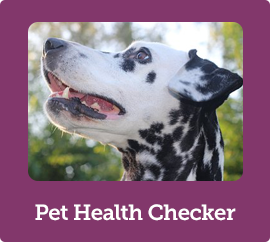One in six cats without clinical symptoms could have Hypertrophic Cardiomyopathy (HCM). HCM is the most common heart disease among cats, but very rare in dogs. HCM is a primary heart muscle disease where the muscular walls of the ventricles become abnormally thickened. The name hypertrophic cardiomyopathy means “thick heart muscle disease”. Hypertrophy of the heart muscle affects the ability of the left ventricle to relax properly, and therefore, function properly. Like the similar disease in humans, HCM is often inherited through family.
Maine Coon and Ragdoll cats have been identified with mutations in the same gene (Myosin-binding protein C) as a cause of HCM. A genetic test has been developed to test these breeds for the mutation. While many pure bred cats are pre-disposed to this disease, the domestic short hair is the type most commonly diagnosed with HCM. The disease can be diagnosed at any age but cats are usually middle-aged to older. However, pure bred cats are often less than 5 years old when diagnosed with HCM. In some cats, the thickening of the muscular walls can lead to arrhythmias and can result in sudden death.
The clinical signs of hypertrophic cardiomyopathy are variable. To some extent, the clinical signs depend on the severity of the disease. Cats are masters of masking problems until they become severe, so cats with HCM may appear normal or may have subtle signs that often go unnoticed. Your veterinarian can pick up on signs when he listens to your cat’s chest during a physical exam. An increased heart rate, heart murmur, and/or a gallop rhythm may be recognized as the disease advances.
CardioPet ProBNP provides a quantitative assessment of the protein released by cardiac muscles in response to stretch and stress. It is a highly accurate and minimally invasive test which enhances patient care and provides early detection. For us to be able to run this test, we collect a small amount of blood and send it to a laboratory for evaluation. This test is highly recommended for cats that are at a higher risk of developing HCM such as Maine Coon, Ragdoll, American shorthair, oriental breeds and Persian. It is recommended for all cats that are undergoing any surgical procedure to have this test done, even if the cat is not showing any clinical signs.
Even though HCM is not common in dogs, it is recommended after a heart murmur is heard to have this test done to establish a baseline for monitoring.
Please call us if you have any questions about adding this test to your pet’s blood work before any surgical procedure.




